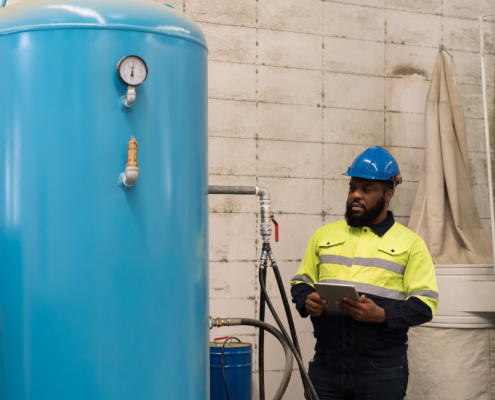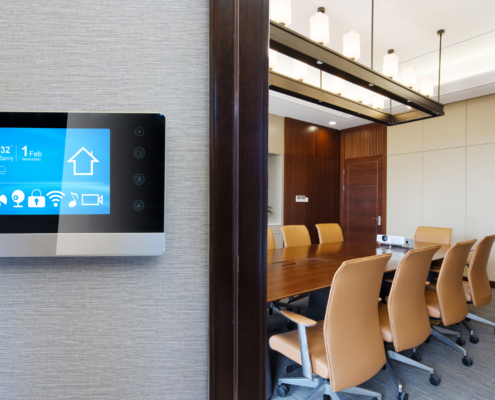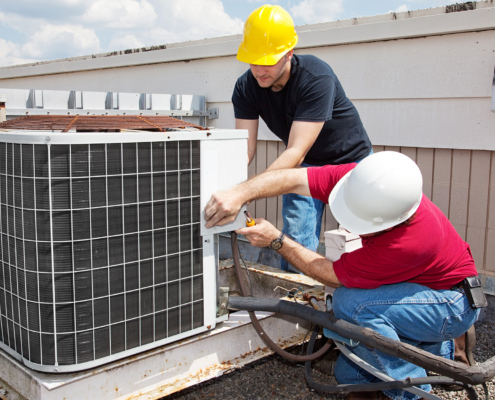 https://agservicestx.com/wp-content/uploads/2025/04/The-Importance-of-Regular-Air-Compressor-Maintenance.jpg
1250
2000
AbstraktMarketing
/wp-content/uploads/2021/02/cropped-AG-Piping-01-300x30m-300x300.png
AbstraktMarketing2025-04-03 14:18:092025-04-25 20:28:15Why Regular Air Compressor Maintenance Matters
https://agservicestx.com/wp-content/uploads/2025/04/The-Importance-of-Regular-Air-Compressor-Maintenance.jpg
1250
2000
AbstraktMarketing
/wp-content/uploads/2021/02/cropped-AG-Piping-01-300x30m-300x300.png
AbstraktMarketing2025-04-03 14:18:092025-04-25 20:28:15Why Regular Air Compressor Maintenance MattersIndoor Air Quality (IAQ) and Its Health Implications
Indoor air quality (IAQ) refers to the purity of the air in buildings, along with its impact on the health and well-being of occupants. Poor indoor air quality can cause many issues, such as discomfort and respiratory problems for employees and customers. However, maintaining respectable air quality keeps commercial environments healthy and inviting.
Learn more about the importance of IAQ and its impact on your commercial building. This article explores the following topics:
- The importance of indoor air quality
- Key determinants of indoor air quality
- Health impacts of poor indoor air quality
- Practical approaches to improving IAQ
- How A&G Services improves IAQ
The Importance of Indoor Air Quality
The air we breathe in a building can significantly impact our health and overall quality of life. Indoor air quality (IAQ) refers to the composition of air in indoor spaces and its effects on occupants’ comfort, health, and productivity. The Environmental Protection Agency (EPA) estimates that around 72% of a person’s chemical exposure occurs indoors. Because of this, IAQ should be a top priority for businesses.
Understanding IAQ: An Overview
IAQ is a complex interplay of various factors, including indoor air pollutants, ventilation systems, building materials, and environmental considerations. It becomes particularly concerning when inadequate ventilation leads to a buildup of indoor pollutants, such as mold, pollen, and carbon monoxide.
The Need for Good IAQ
Maintaining good IAQ is paramount for several reasons. Poor IAQ can lead to immediate health issues like eye and throat irritation, headaches, and dizziness. Moreover, long-term exposure to indoor pollutants is linked to serious respiratory and heart diseases—and even cancer. A healthy indoor environment fosters a better quality of life and prevents the development of chronic health conditions for customers and employees.
Key Determinants of Indoor Air Quality
Common Indoor Air Pollutants
A range of indoor air pollutants can compromise IAQ. These include:
- Mold spores
- Pollen
- Harmful gases like radon and carbon monoxide
- Asbestos
- Formaldehyde from building materials
- Tobacco smoke
- Pesticides
- Particulate matter from outdoor sources
Even everyday cleaning products emit volatile organic compounds (VOCs) that contribute to indoor pollution.
Factors Affecting IAQ
Multiple factors impact indoor air quality, including the presence of pollutants, efficiency of air purification systems, infiltration of outdoor pollutants, mechanical and natural ventilation rates, and humidity levels. A comprehensive approach to indoor air quality improvement requires addressing these interconnected factors.
Poor indoor air quality can pose serious health risks to everyone in the affected space. Learn to recognize the signs of diminished air quality to quickly remedy the situation.
Health Impacts of Poor Indoor Air Quality
Health Risks and Symptoms Linked to Poor IAQ
Exposure to poor IAQ can result in various symptoms, such as respiratory irritation, headaches, sinus congestion, and fatigue. Individuals may experience coughing, sneezing, and dizziness. Vulnerable populations, including children, the elderly, and those with pre-existing health conditions, are particularly at risk.
The Long-Term Effects of Chronic Exposure to Poor IAQ
Chronic exposure to indoor pollutants can lead to severe long-term health consequences, including chronic respiratory diseases, heart conditions, and even cancer. The insidious nature of these health effects highlights the urgency of addressing IAQ concerns.
Practical Approaches for Enhancing Indoor Air Quality
Adequate ventilation is the cornerstone of maintaining good indoor air quality. It involves the exchange of indoor air with fresh outdoor air, reducing the concentration of indoor pollutants. Consider implementing these ventilation strategies:
Ventilation Strategies for Improved IAQ
- Natural Ventilation: Opening windows and doors to allow cross-ventilation can bring in fresh air and expel indoor pollutants. This approach is particularly beneficial during pleasant weather.
- Mechanical Ventilation: Mechanical ventilation systems, such as exhaust fans, air exchangers, and air conditioning units with ventilation features, ensure consistent air circulation even when outdoor conditions are unfavorable.
- Balanced Ventilation: A balanced ventilation system combines supply and exhaust ventilation, preventing airflow issues to optimize indoor air quality. Heat recovery ventilators (HRVs) and energy recovery ventilators (ERVs) can recover heat or coolness from the exchanged air, enhancing energy efficiency.
Advanced Solutions: Air Purifiers and Humidifiers for IAQ
When aiming for a higher level of air quality, consider advanced technologies that work in tandem with natural and mechanical ventilation:
- Air Purifiers: High-efficiency particulate air (HEPA) filters, activated carbon filters, and UV-C germicidal lamps are commonly used in air purifiers to remove allergens, dust, pet dander, and even some bacteria and viruses. They are particularly useful for those with allergies or respiratory conditions.
- Humidifiers: Maintaining optimal indoor humidity levels (between 30% and 50%) is crucial for IAQ. Humidifiers add moisture to dry air, preventing issues like dry skin, irritated respiratory passages, and static electricity. Be sure to clean and maintain humidifiers to avoid mold growth.
The Importance of Working With an HVAC Professional
While there are several DIY strategies to improve IAQ, partnering with an HVAC professional offers unique advantages. A trusted HVAC provider like A&G Services brings specialized expertise and tailored solutions to ensure optimal indoor air quality:
- Comprehensive Assessments: HVAC professionals can conduct a thorough assessment of your indoor environment, identifying sources of pollution, areas of inadequate ventilation, and potential IAQ challenges unique to your space.
- Customized Solutions: Based on the assessment, HVAC experts can recommend and implement a personalized IAQ improvement plan, combining effective ventilation, filtration systems, and humidity control to address your specific needs.
- Proper Installation and Maintenance: Professional installation of ventilation systems, air purifiers, and humidifiers ensures their optimal performance. Regular maintenance by experts also keeps these systems functioning efficiently.
- Expert Knowledge: HVAC professionals stay updated with the latest advancements in IAQ technology, regulations, and best practices. Their expertise aligns your IAQ efforts with industry standards and guidelines.
- Long-Term Benefits: Partnering with professionals ensures that IAQ improvements are sustainable, contributing to occupants’ long-term health and well-being. Additionally, proper preventative maintenance can extend the lifespan of HVAC systems and reduce energy consumption.
If you’re looking for a trusted HVAC professional that not only enhances the quality of your commercial air, but keeps your units, ducts, and ventilation systems efficient, turn to A&G Services.
Maximize Your IAQ With A&G Services
In the pursuit of optimal IAQ, partnering with experts like A&G Services is essential. Our HVAC professionals possess the knowledge and experience to assess, improve, and maintain IAQ in residential and commercial settings. With our services, you’re taking a significant step towards a healthier and more comfortable indoor environment.
Ready to optimize your indoor air quality? Contact us today to maximize IAQ and enhance your overall quality of life.





